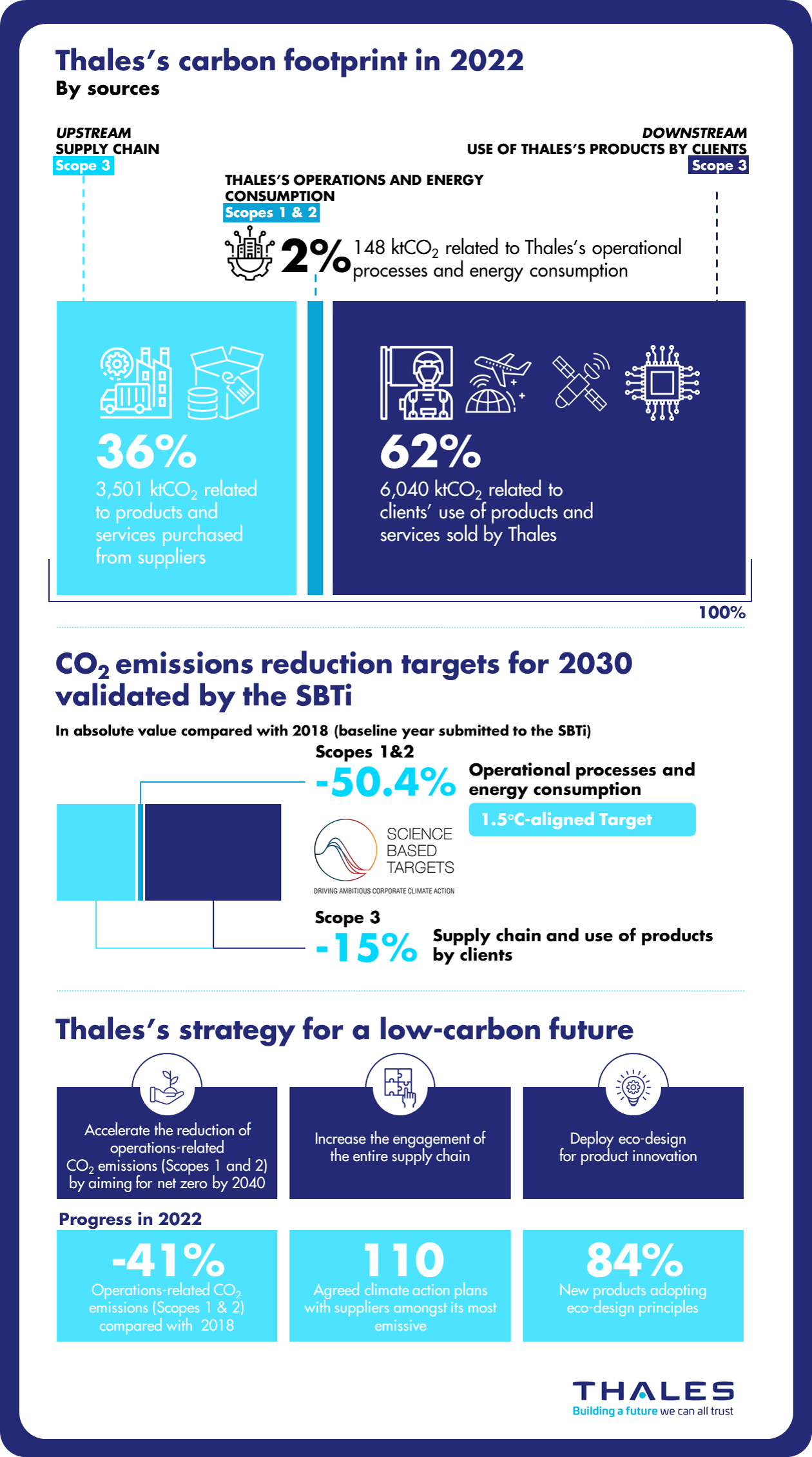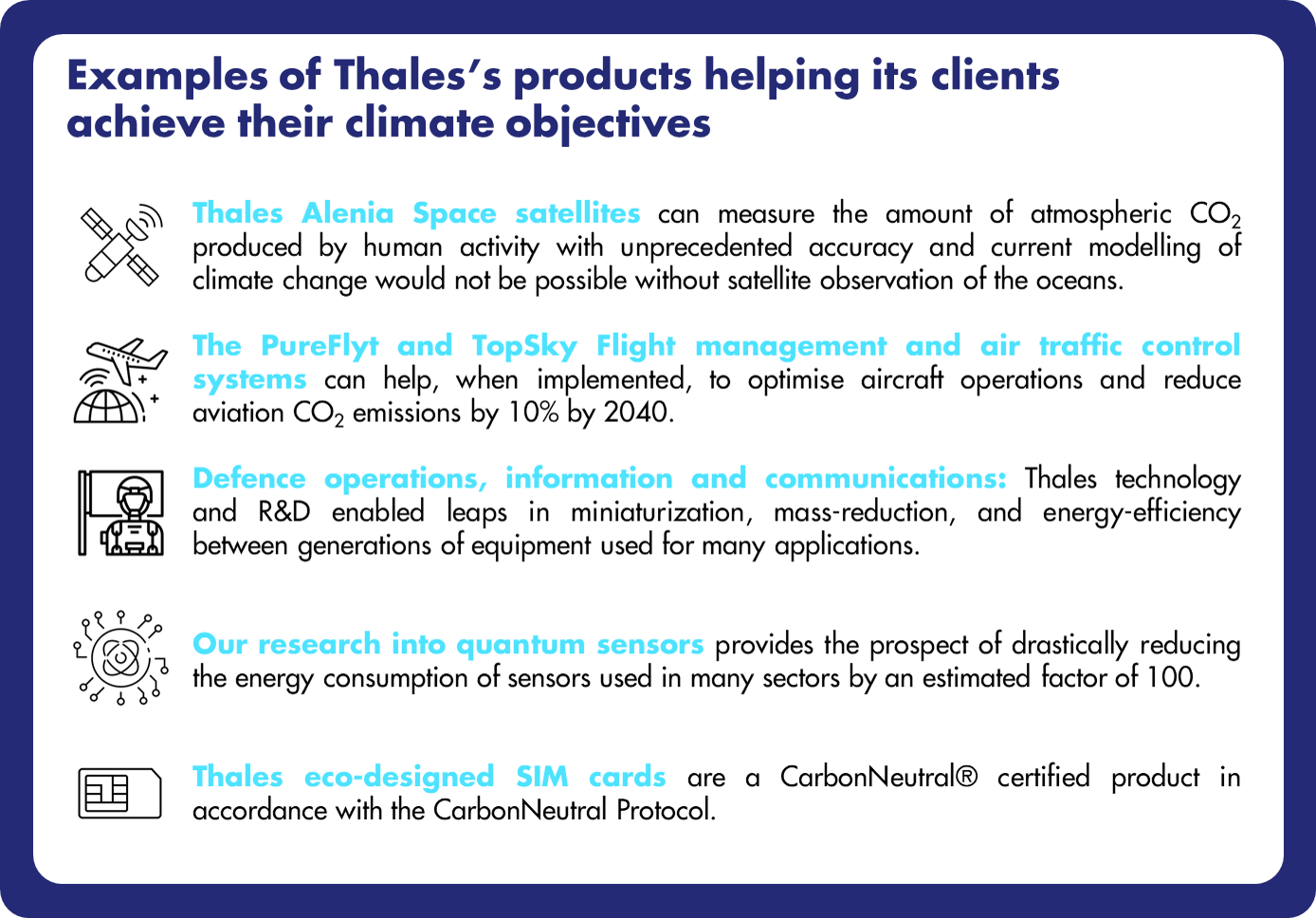Validation of our 2030 greenhouse gas emission reduction targets
The independent Science Based Targets Initiative (SBTi) has approved Thales's greenhouse gas emissions reduction targets for 2030. This confirms the compatibility of these objectives with the Paris climate agreement.
Thales has been committed to a proactive and responsible approach to environmental protection for almost 20 years. In 2019, the Group developed its strategy for a low-carbon future and set ambitious targets for reducing the Group's CO2 emissions.
Later, during the ESG Investor Day in 2021, Thales made a commitment to have its strategy for a low-carbon future validated by the SBTi to demonstrate the seriousness of its approach. SBTi's methodology is globally recognized, and ensures that the CO2 emission reduction action plans of companies are consistent with scientific data on climate change.
Thales thus confirms its commitment to do the following by 2030:
- Reduce by 50.4% the absolute CO2 emissions related to its operational processes (Scope 1) and to the Group’s energy consumption (Scope 2), compared with the 2018 baseline year – a 1.5°C-aligned target, the most ambitious designation available through the SBTi process;
- Reduce by 15% the absolute CO2 emissions related to its supply chain and to the use of Thales’s products by its clients (Scope 3), compared with the 2018 baseline year.
I am very pleased that Thales has obtained this validation from the SBTi, which demonstrates that our strategy for a low-carbon future makes a tangible contribution to the Paris Agreement’s ambition to limit climate change. To achieve our objectives, outside of the energy efficiency and sobriety of our operations, we are supporting our suppliers in reducing their carbon footprint and are supporting our clients in achieving their climate objectives through innovative solutions.
Patrice Caine, Thales’s Chairman and CEO

Thales’s strategy for a low-carbon future was reinforced in 2021 around three main pillars:
1. Accelerating the reduction of operations-related CO2 emissions (Scopes 1 and 2) by aiming for net zero by 2040;
CO2 emissions related to Thales's operations and energy consumption account for only 2% of its carbon footprint. In 2022, we already reduced Operational CO2e by -41% (scope 1 and 2) compared to 2018, thanks in particular to our increased use of renewable electricity and the actions of our energy usage and efficiency plan deployed in 11 countries representing more than 90% of our energy consumption.
2. Increasing the engagement of the entire supply chain;
Emissions linked to our supply chain represent 36% of our carbon footprint in 2022. We have already approved 110 action plans with our suppliers among the 150 greatest emitters. Our goal is to have approved action plans by the end of 2023 with all of the the 150 greatest emitters (representing around 40% of our supply chain's carbon footprint).
3. Deploying eco-design for product innovation;
Emissions related to the use of Thales products by our customers represent 62% of our carbon footprint in 2022.
With this in mind, 84% of new product developments in 2022 were designed following a partial or complete eco-design approach to reduce the volume, mass and integrated materials of products during their design phase. The Group's objective is to reach 100% in 2023.
In addition, we are applying our technological innovations to help achieve the climate objectives of our customers and thus participate in the decarbonization of the economy:



